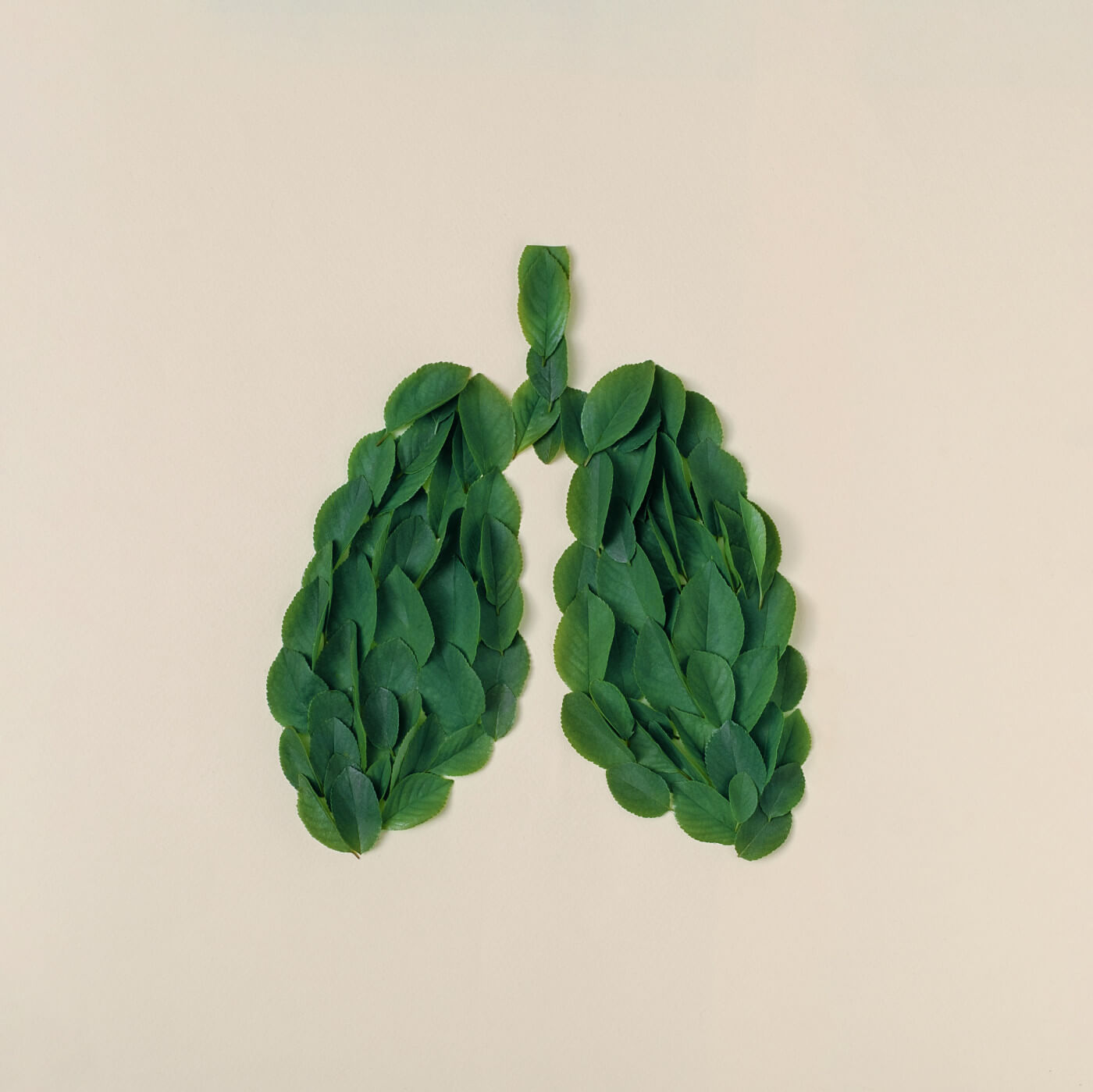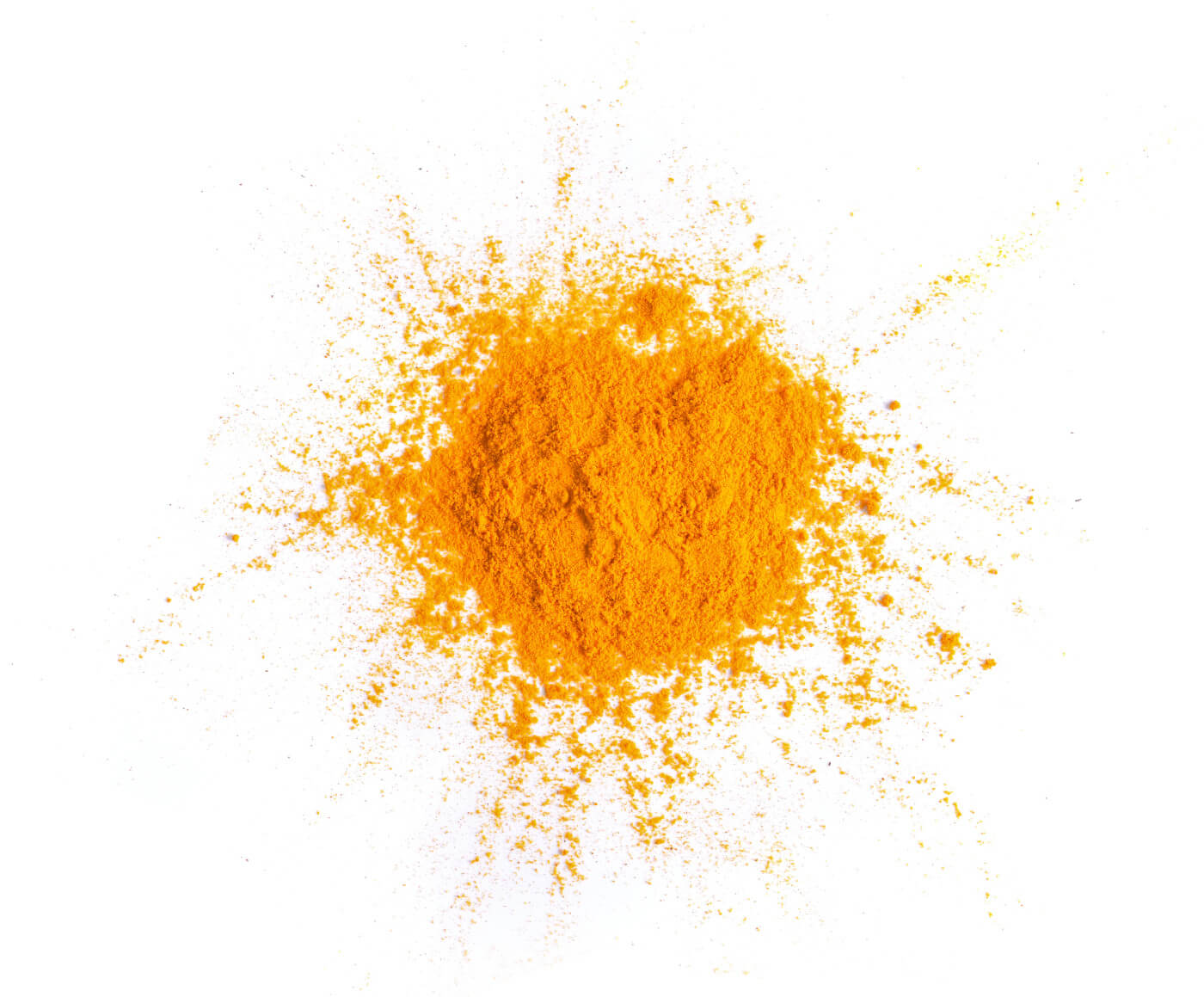As we've learned all too well recently, we can't take lung health for granted. Respiratory infections and chronic conditions are on the rise in our communities, as are pollution and allergens in the air.
For those of us looking for natural ways to support and protect the lungs, it may be helpful to take a closer look at ancient herbal remedies. From turmeric to tulsi, this article will explore several beneficial botanicals that have withstood the test of time.

1. Turmeric

Turmeric is a plant with a history of medicinal use of the root dating back to 250 BC in South Asia. In Ayurvedic medicine, the use cases for turmeric include respiratory conditions such as asthma, bronchial hyperreactivity, and allergies. Today's health food stores stock turmeric in a variety of forms, including pills, powders, and pastes. There is a growing body of research that supports the benefits of turmeric and turmeric-based products. Scientists have isolated active components curcumin, curcuminoids, and curcumin oil to better understand their medicinal properties and, more specifically, their anti-inflammatory, antioxidative, and anticancer effects.
Notes for safe use: When used short-term, turmeric is considered safe to ingest or apply to the skin. Studies typically use doses as high as 500 mg of turmeric daily; however, the dose that's right for you depends on your overall health, so it's best to discuss with your doctor. High doses are not recommended for long-term use and should be avoided if pregnant or breastfeeding.
2. Licorice
Licorice root has a long history of medicinal use in the Chinese, Middle Eastern, and Greek traditions, from soothing upset stomachs to treating upper respiratory problems. More recently, scientists have identified glycyrrhizin as the bioactive compound responsible not only for the root's sweet taste but for its anti-inflammatory and antimicrobialproperties.
Notes for safe use: The short-term use of licorice root supplements and teas is widely considered safe. However, moderation is key as elevated levels of glycyrrhizin have been shown to cause an abnormal increase in the stress hormone cortisol, which may cause imbalances in your fluid and electrolyte levels, and can be harmful if you eat too much. If you have been diagnosed with high blood pressure, congestive heart failure, kidney disease, or low potassium levels, it may be wise to avoid glycyrrhizin-containing licorice products altogether.
3. Mullein
Mullein has been heralded (and studied!) for its potential to help clear phlegm, as well as its antiviral, antifungal, and antibacterial properties. Mullein is usually brewed as tea, using commercially prepared mullein tea bags or dried loose leaves. Brew by pouring 1 cup of water over 1–2 teaspoons of dried mullein leaves or flowers and let it steep for 15-30 minutes before drinking. To jazz things up, consider adding raw honey, cinnamon, or a lemon wedge.
Notes for safe use: Further research is necessary to better understand mullein's medicinal properties, but mullein tea is widely considered safe and has few side effects. It is worth noting that the mullein plant may cause skin irritation for some people. Exercise caution if you're handling the herb directly, and to prevent throat irritation, use a strainer or cheesecloth to remove as many of the leaves as possible before drinking your Mullein tea. The safety for pregnant or breastfeeding women has not been established.
4. Vasaka
Adhatoda vasica, commonly referred to as vasaka or Malabar nut plant, is a herb with a long history of use as an expectorant and respiratory remedy. Studies have shown that vasaka leaves contain a bioactive compound, vascine, with bronchodilatory and respiratory stimulant properties. Vasaka may be found in lung health supplement products, or you can make a mix to drink by boiling vasaka leaves and adding a spoonful of honey.
Notes for safe use: The use of vasaka is considered safe when consumed in the proper amounts — dosage recommendations for vasaka leaf powder range between 1 and 3 grams daily. While there are no known adverse effects of this herb, it's best to consult with a health professional before use - especially if you are pregnant or breastfeeding.
5. Ginseng
According to Chinese herbal tradition, ginseng is an ancient herbal remedy that has long been believed to improve lung function. Indeed, there is research to support the use of ginseng to help reduce the risk and duration of respiratory infections. There are also studies on Panax ginseng as a potential therapeutic agent to mediate allergic inflammation in asthma.
Notes for safe use: Ginseng has been known to interfere with several types of medications, including blood thinners, diuretics, stimulants, some antidepressants, and drugs that suppress the immune system. Given these potential interactions, it should only be taken after consulting with a doctor or other health professional.
6. Holy Basil (Tulsi)
Ocimum sanctum, commonly referred to as Holy Basil or Tulsi, is well known for its medicinal use in the Ayurvedic tradition to address coughing and asthma, among other health issues. Scientists have taken a deeper look at the therapeutic potential of Ocimum sanctum extract, with recent studies suggesting anti-inflammatory, antimicrobial, and anticancer properties.
Notes for safe use: It's important to note that holy basil is not the same as the sweet basil used for cooking - there are actually more than 100 varieties of basil with unique properties. The long traditional history of regular tulsi use suggeststhat any serious long-term effects are unlikely and that daily ingestion is safe. The safety of pregnant or breastfeeding women has not been established.
Herbs are a great natural tool to support lung health but should be incorporated thoughtfully within recommended guidelines for safe use. While small amounts used in cooking have a lower risk, you should always ask your doctor or healthcare provider before ingesting large quantities or starting a new supplement.
---
Whether you need a prebiotic or probiotic supplement or both we’ve got clinically studied solutions waiting to be discovered.
These are expert opinions on lifestyle from professionals who are board-certified physicians, registered dietitians, or healthcare professionals. This content does not represent any medical advice for the prevention or treatment of any medical diseases.